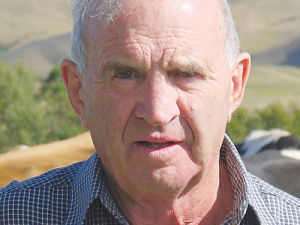The reduction in greenhouse gas emissions and the meeting of New Zealand’s climate change obligations is very much in the mind of officials and the thinking public. Many groups are looking into new chemicals, genetically modified crops and rumen bacteria, plant and animal breeding, growing more trees, etc, as potential means of reducing or avoiding the GHG problem.
However, around the world scientists are pointing out that sequestration of atmospheric carbon into the soil, through means such as grazing livestock on permanent pastures and perennial crops, can be a natural and cost-effective means of offsetting carbon emissions.
In NZ, a small group of pastoral farmers have since 2008 been using management practices designed to build soil carbon. They saw it as a better, healthier way of farming and one that might also yield carbon credits for sale or to offset any carbon taxes. It would only need 25% of NZ dairy farmers to farm this way to offset all the emissions from the whole of the country. Annual standardised sampling to 1m and analyses by an accredited laboratory have shown steady increases in total soil carbon averaging about 5%. This is highly significant.
Soils are the world’s largest terrestrial carbon sink, containing much more carbon than the plant life and trees on the surface.
However, the carbon above and below ground is inextricably linked with plants using photosynthesis to extract CO2 from the atmosphere and convert it to carbohydrates that flow to the roots and are exchanged for minerals from soil microbes.
This underground economy fosters the growth of plants, animals and soil organisms. Their eventual decomposition results in organic matter (58% carbon) building up in the soil to improve water holding capacity and fertility.
Grazing animals on pasture can be a very effective way of growing soil carbon, and NZ pastoral farms show the result of many decades of accumulation in their topsoil. However, the belief towards the end of last century was that NZ pastoral soils were ‘saturated’ with carbon and could not absorb any more.
Recent research has shown that in reality there is no such ‘steady state’.
Over a 20-year period some soils were found to be still gaining carbon while others – particularly those under intensive dairying – were losing carbon.
Sequestering atmospheric CO2 into soil carbon can achieve the Paris agreement targets, avoid the need for the NZ Government to spend $14 billion buying carbon units from overseas, and allow the sale of soil carbon units to the world at no cost to taxpayers or the NZ Government and provide a financial benefit to NZ pastoral farmers.
• Peter Floyd is a Cambridge farm advisor and software developer.

















